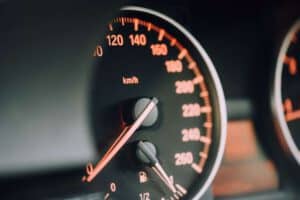Recent figures show that our love affair with new cars is as strong as ever. The Society of Motor Manufacturers and Traders report that 2.3 million new cars were sold in the UK in 2019, with the Ford Fiesta, VW Golf, and Ford Focus the most popular models.
One of the reasons for a recent rise in the number of new car sales has been a growth in the popularity of Personal Contract Hire (PCH) or ‘leasing’. But what’s the best way to buy a new car? Should you buy or lease? And what if you want to keep the car at the end of your contract?
Here’s your complete guide to the finance options when it comes to buying a new car.
The old-fashioned way
While there may now be a myriad of financing choice available, it’s still possible to walk into a dealership and buy a new car using cash.
This can often be the cheapest way of buying a new car. Not only can you negotiate the price with the dealer as you’re buying outright, but you won’t have to pay interest on any loan or finance agreement.
Bear in mind that if you are using your own savings to buy a car, it could still benefit you to pay for a small part of the car on your credit card so you benefit from credit card purchase protection. Putting just a few hundred pounds of the cost on your card means the card provider is jointly liable with the retailer if something goes wrong.
You can also use a personal loan to effectively buy your car for cash. Shop around for the lowest unsecured personal loan rate and you’ll benefit from the flexibility of owning the car from day one. This enables you to make modifications or sell the car at any time.
Personal Contract Hire (leasing)
If you like to change your car every few years, and you’re not bothered about owning a vehicle, then Personal Contract Hire (PCH) or ‘leasing’ could be perfect for you.
Under PCH, you make an initial payment, typically around three months of leasing payments. You then make a monthly payment for a fixed period – usually two or three years. At the end of the lease – basically a long-term rental contract – you hand the keys back, with no option to buy the car.
PCH works by calculating the likely depreciation of your chosen car, based on its ‘new’ price, your estimated annual mileage, and its anticipated residual value at the end of the lease.
This figure is then divided by the number of months in your lease agreement, interest is added, and that forms your monthly payment.
One thing to bear in mind with leasing is that you never actually own the car. You are essentially leasing it for the term with an obligation to return it at the end of your lease.
Personal Contract Purchase (PCP)
Personal Contract Purchase (PCP) works in a similar way to leasing.
You make an initial payment, and your monthly payments are based on the depreciation of the vehicle over the term of your contract (plus interest).
The difference is that, using PCP, you reserve the option to buy the car outright at the end of the contract. If you like the car, you just make the large optional final payment (sometimes called a ‘balloon payment’ or Guaranteed Minimum Future Value (GMFV)) and you get to keep the car.
Note that you are not obliged to buy the car at the end of your PCP contract. You can choose to hand back the car if you prefer.
A quick note about condition and mileage
You can hand back the car at the end of the contract using both PCP and PCH. In both cases you will have nothing more to pay unless:
- You have exceeded your estimated mileage – here you may pay around 10p for every extra mile you have driven. If you leased the car based on 30,000 miles and you actually drive 35,000 miles, this could cost you an additional £500 or so
- The car is not in good condition – while a dealer will normally accept general wear and tear, you’ll generally have to pay for more serious repairs, such as damage to the bodywork
Bear in mind also that under both types of agreement you’re likely to have to keep the car’s service record up to date. This is likely to mean maintaining a full manufacturer service history. When you buy the car, the dealer should tell you whether you’re expected to have your car regularly serviced with a specific franchised dealership.
PCP v PCH
According to the Finance and Leasing Association, four out of five people with PCP plans don’t opt to buy the car at the end of their contract.
If this is likely, leasing a car through PCH might work out cheaper for you. However, be careful. If you can’t afford the PCH monthly payments and have to cancel the agreement, you may have to pay off the leasing costs in full.
On a PCP plan, if you want to hand the car back early, as long you’ve already paid more than half of the total balance due, you can simply return the keys with nothing more to pay,
With both PCH and PCP the lender can repossess the car without a court order. But with PCP, once you have paid at least a third of the total amount payable, they can’t repossess it without a court order.

